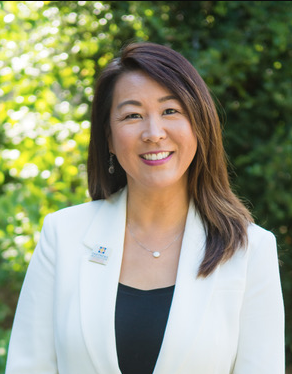A Call to Action to Stop Anti-Asian Hate
Disrupt Racist Rhetoric by Inserting Your Voice

Born and raised in the United States, I have never pledged allegiance to any other flag but ours. This country is my home. I am that person who sings patriotic songs on road trips. If we’re driving together, there is a high likelihood that, at some point, our windows will be down and we’ll be singing, “This land is your land, this land is my land.”
Being American is part of my identity, but there have been instances where I have been confronted, challenged, and hurt. From the time I was a young girl, I have witnessed people shouting at my parents, degrading them for speaking English with thick Korean accents. At different periods in my life, people have extended the corners of their eyes with their fingers, mocking my Asian eyes, telling me to “go back to China.” I have been asked if I see things through a panoramic view because of the ways my eyes are shaped. Words and actions directed at my family and me have ranged from quiet and subtle to chaotic and violent, and for most of my life, I’ve kept silent. That ends today.

Here we are in 2021, addressing anti-Asian hate and violence, and most of us are devastated and saddened that we have to confront it. We view videos that show violence against elderly Asian people. We read about the murders in Atlanta and feel sadness and sorrow, and we question how this can be real. We retweet hashtags, like #StopAsianHate, as a call to action. What does “stopping” Asian hate look like? What steps can we take?
For some of us, stopping means that we allow ourselves time to pause and reflect on how we are doing and feeling. In the past few days, I took time to think and reflect on my own and then talked with my children. When I asked them their opinions about what causes racism, the dialogue was good. But when we kept going, taking the initial questions to new levels, asking what contributes to the absence of racism, I was impressed with how readily they could express their perspectives. Their experiences are theirs and not a repeat of mine; their childhood has provided them with venues to express their voices, books with characters with experiences and backgrounds that mirror their lives, and classroom environments that discuss race, equity, and inclusivity. Our dialogue helped reenergize my optimism and hope that our children — not mine alone, but ours together — have the language and tools to help create the future we seek.
For others, stopping may mean that you check in with friends and family. You may feel unsure about what to say or be afraid to say the wrong thing. Coming from a place of being open to learning, being vulnerable, and saying, “I’m not sure what to say” or “I’m worried that I might say the wrong thing, but I am here to talk, listen, and learn,” can work wonders. By reaching out and showing your support, your actions will convey so much more than having the “perfect” words. Providing space to allow stories to be aired, expressed, vented, and brought into the light, might be your starting point.
In addition to pausing, engaging in dialogue, and reaching out to friends and family, let’s do more. Let’s disrupt racist rhetoric and narratives by inserting our voice, insisting on change, and using what Nelson Mandela has called the most powerful weapon available: education.
Let’s resolve to educate ourselves and others on what it means to stop hate. Let’s stop the dialogue when we hear language that creates an “us” versus “them.” Let’s educate, inform, and transform so that policies and practices support tangible equity for all. Let’s do our part to change the narrative and experience for all people who have endured racism, hate, and violence throughout our history, for generations, and even today, in 2021. Let’s talk with and listen to our children, whom I believe are making monumental strides in the area of race, equity, and inclusivity. Let’s protect the elderly from being pushed down by racist acts and reprehensible violence. Let’s listen to those whose voices have been silent and whose eyes — that may be shaped like mine — have witnessed tragedy and despair. Let’s do this together, today.
Dr. Susan Salcido is superintendent of the Santa Barbara County Education Office.




You must be logged in to post a comment.